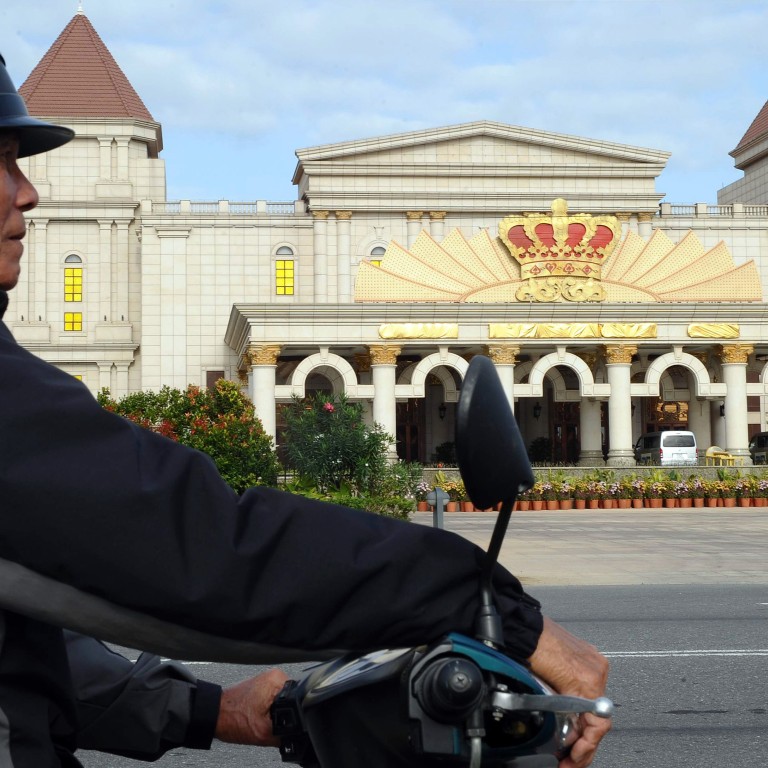
Vietnam refuses to lift casino ban on locals and foreign investors aren't happy
Local reports say the ruling is based on concerns of gambling addictions, money laundering and other illicit activities
The failure of Vietnam's government to reverse a longstanding ban on locals in casinos may be detrimental to foreign investment in the sector, analysts cautioned.
In its latest draft decree this week, the Ministry of Finance maintained that only foreigners and Vietnamese with foreign passports can access casinos, according to local media reports. Earlier this year, a request was submitted to revise the rule, sparking hopes that the newly installed government, led by Prime Minister Nguyen Xuan Phuc, would loosen the strict regulations.
Local newspapers said the ruling was based on social concerns regarding gambling addictions, money laundering and other illicit activities.
"We were thinking the government would allow locals to play low-stakes games at least; this announcement is tighter than expectations," said Michael Kokalari, head of Vietnam research at CIMB.
Speculation was also rife that officials would implement an entry fee for locals, akin to Singapore's policy, or impose a minimum net worth requirement in order to deter low-income individuals from gambling.
"On the surface, this [Monday's news] is clearly bad news for international integrated resort (IR) developers who viewed Vietnam as one of the prized global greenfield opportunities," said Grant Govertson, founding partner of Macau-based research firm Union Gaming Group, in a note.
"It kills any interest for large gaming companies to invest in IR projects," echoed Shaun McCamley, head of Asian operations at management consulting firm Global Market Advisors.
Home to a youthful and educated population, the Southeast Asian nation has long been touted as a bright spot in the global gaming market amid a downturn in Macau, the world's largest casino hub.
Nearly 60 per cent of the Vietnam's population is under 35 and the number of university graduates has spiked 60 per cent within the last decade, according to a May note by market research firm Nielsen. Moreover, Boston Consulting Group expects the middle and affluent class to more than double in size between 2014 and 2020, from 12 million to 33 million.
"Vietnam was viewed as a potential great investment opportunity should the government allow locals. Las Vegas Sands has been the most visible and vocal major gaming developer who has an interest in Vietnam," pointed out Govertson.
There are currently around seven licensed casinos in the country, all of whom bet on foreigners alone for growth. One of them is the Crown International Games Club in the coastal city of Danang, a hotbed for wealthy Chinese. Thanks to Chinese President Xi Jinping's crackdown on conspicuous spending and lavish lifestyles, VIP gamblers from the mainland are turning their backs on neighboring Macau in search of other shores.
The finance ministry also made no change to the current laws that weigh on foreign investors looking to run a casino in Vietnam.
A minimum US$4 billion capital requirement is required, which Govertson believed had been cut in half in previous iterations of the draft decree.
"No casino orientated group will invest that sort of sum where locals are not allowed to play," said McCamley.
Other conditions include a 10 per cent value added tax, a 35 pe rcent gross gaming revenue tax and a 20 per cent corporate income tax.
"All of the above are positive for neighboring markets like Cambodia and Laos, which have more investment-friendly parameters," Govertson noted. Still, he was hopeful that the regulations could loosen up in the future.
"We are taking this news with a grain of salt as not only is the draft decree up for further revisions, but that it could represent a trial balloon in order to get further input from the local community, or perhaps extract more concessions from developers."
McCamley meanwhile noted that the government's new draft decree was not final. "I was told by my Vietnam connections, that the law has not yet been changed, the draft denying locals access was submitted to the PM Office but no decision has yet been made."
However, CIMB's Kokalari was slightly more pessimistic.
He anticipates the taxation and investment environment to improve going forward, but warned that locals are unlikely to ever get free reign inside casinos.
"We have warned investors for years that their expectations about the likely ability of locals to gamble in Vietnam were unrealistic. The new government is even more conservative than the previous administration."
—Follow CNBC International on Twitter and Facebook.

